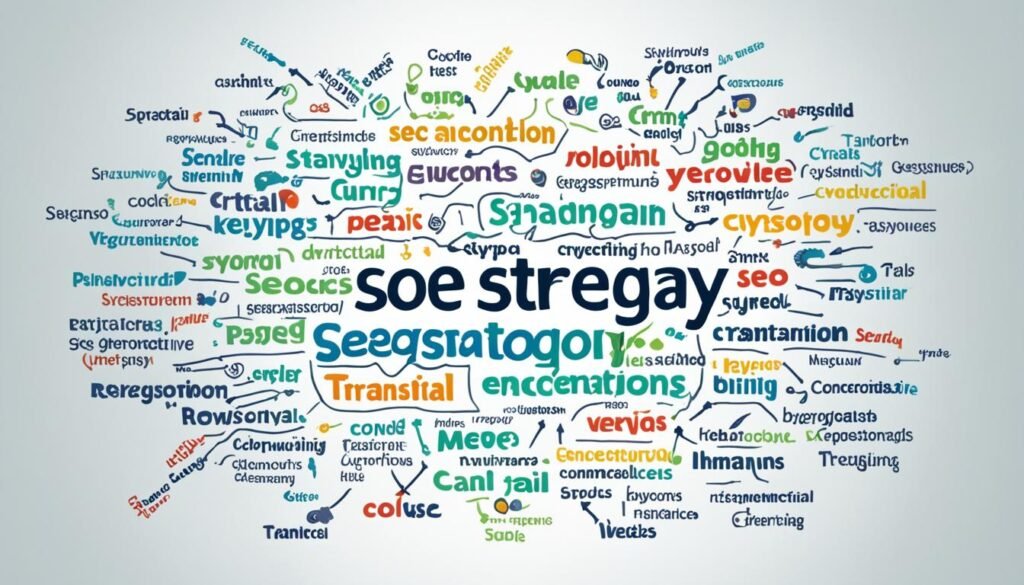In the realm of digital marketing, keyword research is a pivotal process that involves identifying and scrutinising the terms that potential customers use when searching for information online. By understanding these search queries, you can tailor your content strategy to better align with the needs and interests of your audience. This not only enhances your overall SEO but also facilitates effective content optimisation, ensuring that your articles and websites rank favourably on search engine results pages. As search engines continue to evolve, mastering the right keyword strategy becomes an essential element in driving organic traffic to your site, enhancing visibility in an increasingly competitive landscape.
Table of Contents
ToggleKey Takeaways
- Keyword research is crucial for effective SEO.
- Understanding your audience’s search terms aids in content optimisation.
- A structured keyword strategy can boost your website’s visibility.
- Thorough research helps in identifying potential traffic sources.
- Staying updated on search trends is vital for ongoing success.
Understanding the Importance of Keyword Research
Keyword research serves as the cornerstone of an effective SEO strategy. By identifying and targeting the right keywords, you can significantly enhance the relevance of your content, ensuring that it meets the specific needs of your audience. This practice not only improves rankings on search engines but also strengthens your overall audience connection.
Boosting Your SEO Strategy
Implementing insightful keyword research leads to a more focused SEO strategy. It allows you to understand what terms and phrases your audience is actively searching for. By incorporating these keywords into your content, you increase your chances of appearing in relevant searches, fostering higher traffic and engagement levels.
Connecting With Your Audience
Your ability to connect with your audience depends on how well your content speaks their language. The importance of keyword research comes into play here as it guides you in aligning your topics with what potential customers are interested in. By prioritising content relevance, you create a more engaging experience that resonates with your readers, ultimately leading to improved conversion rates.
What is Keyword Research?
The definition of keyword research revolves around the process of identifying the terms and phrases that potential customers enter into search engines. This practice plays a pivotal role in shaping your content strategy, as it allows you to understand the language your audience uses when seeking information online.
Engaging in thorough keyword analysis enables you to uncover valuable insights into the search behaviour of users. By tracking specific keywords, you can determine their popularity, assess search volume, and evaluate the competition associated with them. This understanding informs your content creation efforts, tailoring it to meet user expectations and enhance visibility.
In essence, the goal of keyword research is to align your content with your audience’s needs. By comprehensively examining and implementing the right keywords, you can significantly enhance your online presence and improve your chances of attracting relevant traffic.

Types of Keywords to Consider
Identifying the various keyword types is essential for developing a robust SEO strategy. Each type of keyword serves a specific role in capturing search intent and driving targeted traffic. Understanding how to utilise long-tail keywords, semantic keywords, and short-tail keywords will enhance your content strategy.
Long-Tail Keywords
Long-tail keywords are phrases that contain three or more words. They are highly specific and often indicate a clear user intent. These keywords typically attract less search traffic, yet they offer higher conversion rates as they cater to more defined queries. For example, instead of just targeting “shoes,” you might focus on “best running shoes for flat feet.” This specificity improves audience targeting and relevancy.
Semantic Keywords
Semantic keywords relate to the overall meaning of a topic rather than specific phrases. Search engines use semantic keywords to understand context. By incorporating related terms and synonyms, you can optimise your content for diverse queries. This not only enhances user experience but also improves your visibility in search engine results by aligning more closely with user search intent.
Short-Tail Keywords
Short-tail keywords consist of one or two words and often receive high search volumes. They are broad and typically lack specificity, making them highly competitive. For example, “shoes” is a short-tail keyword. While these keywords can drive large amounts of traffic, they may not lead to high conversion rates. Strategically combining short-tail keywords with long-tail and semantic variations can optimise your content for better results.

Tools for Effective Keyword Research
In the realm of digital marketing, leveraging the right tools for keyword research can significantly enhance your strategy. By utilising efficient keyword research tools, you can gain insights into what potential customers are searching for, thus ensuring your content aligns with their needs. There are options available for all levels, whether you’re just starting or seeking more sophisticated solutions.
Free Tools for Beginners
If you are new to keyword research, several free tools can help you get started without any financial investment. Platforms such as Google Keyword Planner and Ubersuggest provide intuitive interfaces that allow you to conduct fundamental keyword analysis. These free tools offer essential features, enabling you to identify trending search terms and assess their competitive landscape, which is crucial when laying the groundwork for your SEO strategy.
Advanced Tools for Professionals
For those ready to take their keyword research to the next level, advanced SEO tools such as Ahrefs, SEMrush, and Moz provide comprehensive analytics and detailed insights. These keyword analysis software options come with enhanced features, allowing for in-depth competitor analysis, keyword difficulty assessment, and performance tracking. Investing in these advanced tools can yield significant returns by refining your overall content strategy and maximising your visibility online.





